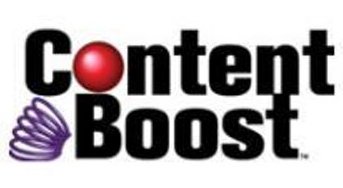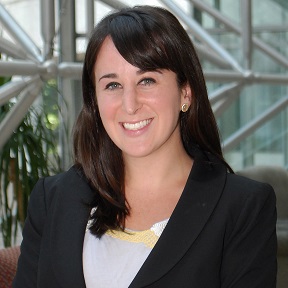Recently I had the pleasure of connecting with Carrie Majewski, Director of Content Marketing for Content Boost.
In the Q&A below, we discuss what clients are looking for from content marketing and Carrie’s thoughts on how content marketing is evolving. Carrie also attended the recent Content Marketing World conference and shares some of her takeaways from the event.
Tell us a little about yourself, and Content Boost
CM: Content Boost is the custom publishing division of TMC, an online media company that has been in business for over 40 years. Our goal is simple: amplify our clients sales through the creation of custom copy.
As a leading content strategy vendor we help our clients with a number of their content objectives, from ghost writing for their C-suite to creating SEO-driven blog posts to originating white papers and case studies. We are a soup-to-nuts content vendor, equipping our clients with everything from strategy to copy creation to distribution.
In my role as Director of Content Marketing for Content Boost, I am committed to growing and overseeing the division. When TMC asked me to head up the Content Boost division, saying yes was a no-brainer. I’ve always believed in the power of words. Words tell stories, evoke emotions and incite behavior. I saw the potential to create a content marketing division centered upon crafting the right stories for clients to help them increase brand awareness, drive ROI and improve customer acquisition and retention.
Content marketing has clearly become “a thing,” but what does it mean to you exactly?
CM: There are a number of definitions associated with “content marketing” but here at Content Boost we define it as the following: an integrated marketing strategy that involves creating and sharing relevant, customized, insightful copy-with the end goal of bolstering brand awareness and driving profitability. That content can come in the form of blogging, infographics, videos, social media… the list is a long one.
If you had to extract only two key themes in that definition, they would be the following: Content marketing is all about integration and customization. You can’t enjoy content marketing success without both.
You attended Content Marketing World this month in Cleveland — what were your impressions of the conference?
CM: I was very lucky to be able to attend Content Marketing World (CMWorld) both this year and last and neither year disappointed. The team at CMWorld truly creates an event worthy of buzz, excitement and intrigue. There is something so electrifying about getting the world’s top marketers, creators and innovators in the same venue for a few days to talk strategy and campaigns.
There were a few things that really stuck out to me about CMWorld. The first was the sheer number of people at this year’s event. This year, the number of attendees almost doubled from 2013 and it was quite obvious. Sessions were closed early due to packed attendance and there was standing-room only in a number of breakouts.
This tells me a few things. The first is that the business world is ready for content marketing. Companies are investing in sending their teams to content marketing events and professionals have their eyes and ears open for the latest strategies. It also tells me that this marketing landscape is on a huge upward trajectory.
The other thing that jumped out at me was the major focus on the role sales plays in content marketing. Peter O’Neill, VP and research director at Forrester, summed it up best when he said, “We in marketing are just as responsible for providing content to and through our sales force as we are for providing it to our potential buyers.”
In other words, your sales team might be your biggest customer. Ask them what kind of content they need to better prospect. Your content marketing strategy must include them.
Are the clients you work with “ready” for content marketing? What does that mean – from a technology and a cultural perspective?
CM: Here at Content Boost we’ve seen accelerating market maturity over the years. For instance, we no longer have to start our sales conversations with “This is what content marketing is.” The market is more informed. We are seeing a fundamental education shift in that prospects want to understand why content marketing matters for their business, rather than what it is.
Businesses across the globe and across all verticals are ready for content marketing. They know they need content help—whether it’s in the form of email marketing, white papers or blogs. And they are starting to look for help, whether internally or externally.
Moreover, technology has helped us embrace this new landscape quickly. Innovations such as marketing automation, sales automation and CRM have accelerated the content marketing movement. As companies continue to invest in such platforms, the need to feed the content beast—the automation platforms—grows. And that’s where content marketing comes in to play.
Where do you see content marketing going in the next 12-18 months?
CM: There are many things I think we will see in the coming months, but one thing is for certain. We are quickly approaching a business climate in which it will near impossible to find even one company that does not have a blog. I was reading a report the other day titled “The New Rules of Selling” and one central sentiment stood out: educate and inform prospects instead of interrupting and selling. In other words, arm consumers with something they can read, learn and digest. Don’t give them a sales pitch.
Blogging will play the biggest role in sales moving forward. It will be a company’s chance to demonstrate thought leadership and subject matter expertise (instead of doling out pamphlets and specs) and it will be their way to elucidate on their core competencies (instead of having to embark on cold calling).
The future of content marketing is bright. And I can’t wait to see where we head next!

